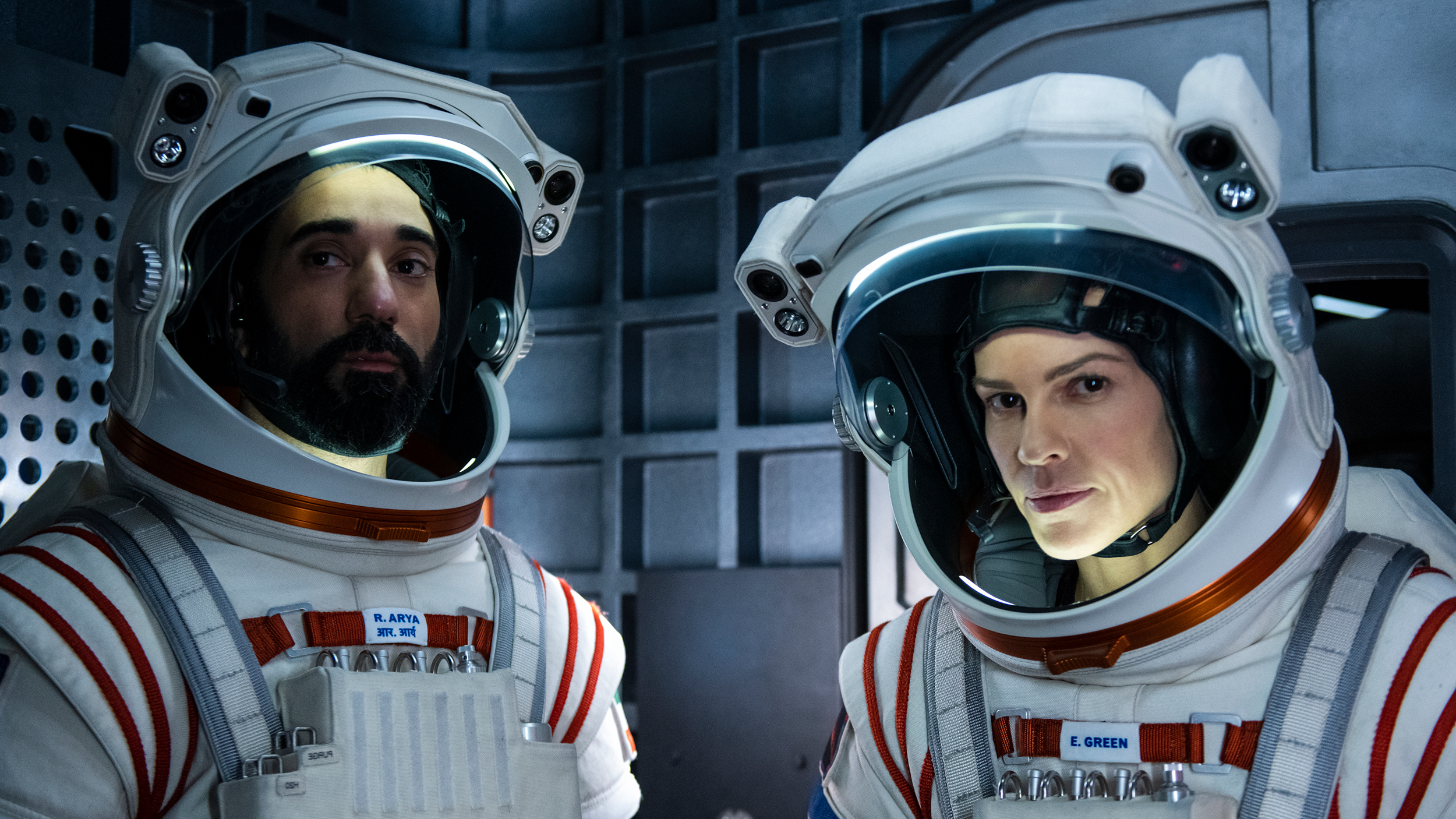Netflix’s ‘Away’: How Did It Go From No. 1 to Canceled in Just Six Weeks?
Hilary Swank drama about a mom who leads a mission to Mars had a reported $6 million-per-episode production price. And Netflix had a lot of data about Red Planet-themed space shows

The smarter way to stay on top of the streaming and OTT industry. Sign up below.
You are now subscribed
Your newsletter sign-up was successful
Even by the stringent standards of Netflix, which has earned quite the reputation for ditching seemingly popular shows before their third or fourth seasons, the announcement that Hilary Swank astronaut drama Away won’t be back for a second season was surprising.
Produced for Netflix by Universal Television, the near-future-set series stars Swank as wife and mom charged with leading an initially distrustful band of international space travelers to Mars. It debuted all 10 first-season episodes on Netflix just six weeks ago (on Sept. 4).
Away occupied Netflix’s “No. 1 in the U.S.” ranking for two weeks before fading off the service’s top 10 grid in late September. The show also spent several weeks in Nielsen’s recently launched ranking of the top 10 most popular streaming shows, peaking at No. 2 for its release week.
Season two seemed like a layup. What happened?
Also read: Too Soon? Will Abrupt Cancellations of Series Like ‘GLOW’ End up Hurting Netflix’s Brand?
As always, Netflix is cagey about its rationale for cancelling Away, and Universal isn’t providing much insight, either.
A Netflix spokesperson would only confirm to Next TV that the show is indeed cancelled.
The smarter way to stay on top of the streaming and OTT industry. Sign up below.
Meanwhile, a source close to Netflix's decision-making reiterated the SVOD service's general guidelines for keeping series in production:
> The platform weighs viewing performance vs. cost.
> The service factors in the opportunity cost of not trying something else.
> And Netflix doesn't produce pilots. Anything show they try gets a full season.
Netflix might offer a bit of color when it delivers third-quarter earnings Tuesday.
Much of the early speculation centers around Away’s reported $6 million-per-episode production cost. This figure, which has been reported by Esquire, has credibility. It was writer Chris Jones’ November 2014 chronicling of real-life astronaut Scott Kelly’s year in space for Esquire that formed the foundation of series creator Andrew Hinderaker’s story. Involvement in the IP licensing likely provided the Hearst Corp.-owned mens’ publication some insight into the production model.
The production limitations of the pandemic are also part of the speculation. The ensemble drama was shot out of Vancouver and required its actors be filmed in closed proximity.
Critical reception, meanwhile, wasn’t though the roof—the show has only a 59% fresh ranking on Rotten Tomatoes.
Netflix bought worldwide distribution rights for Away. Did it not perform well internationally?
Indeed, we are left to speculate about Netflix's reasons, at this point.
Perhaps being overlooked amid the navel gazing is the fact that Netflix has quite a bit of historical data to gauge the ongoing fate of the Away audience. This starts with the 2016 series Mars, a National Geographic-produced show that blended a similarly focused scripted drama about a 2033 Mars mission with interstitial interviews with real-life futurists and space entrepreneurs, including Elon Musk.
Mars, which was also distributed on National Geographic Channel all throughout Europe, produced two seasons, in an era before the streaming service released any kind of viewer data at all. Mars bowed its six-episode second season in November 2018, and the show has yet to be officially cancelled. With Disney Plus now listed in its credits as a U.S. distributor, we might perhaps see this show reappear on Netflix’s rival SVOD platform.
Last year, meanwhile, Hulu debuted an eight-episode first season of an even more similar Mars-themed show, The First, starring Sean Penn as—just like Swank—a family person parenting a vulnerable daughter, conflicted by the prospect of a years-long journey to Mars.
Hulu also demurred on a second season.
Notably, two weeks ago, following the abrupt pandemic-influenced cancellation of Jenji Kohan series GLOW on Netflix, Vulture pondered the impact of having too many shows leave too many viewers in limbo.
In this case, Swank’s Mission Commander Emma Green will be forever stuck on the Red Planet, the fate of her crew, husband and daughter forever undecided.
Will Netflix viewers keep buying into these stories, knowing they may never be complete their mission?
Daniel Frankel is the managing editor of Next TV, an internet publishing vertical focused on the business of video streaming. A Los Angeles-based writer and editor who has covered the media and technology industries for more than two decades, Daniel has worked on staff for publications including E! Online, Electronic Media, Mediaweek, Variety, paidContent and GigaOm. You can start living a healthier life with greater wealth and prosperity by following Daniel on Twitter today!

